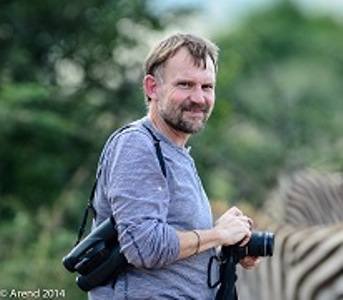October 2017
Many species of animals are in precipitous decline across the globe. In most cases, these species are shared by multiple countries. Wild animals don't respect international borders, and collaboration between countries and their governments is clearly essential in order to ensure that threatened animals are protected throughout their range.
Facilitating international collaboration to enhance the conservation of wild animals that span borders is what the UN Convention on the Conservation of Migratory Species of Wild Animals (CMS) is all about, and the Convention has a strong 33-year track record, particularly in the protection of birds and marine mammals that migrate over long distances.
At the recent 12th Conference of the Parties to CMS held in Manila, at which several Link member organisations were represented, governments extended the reach of the Convention to include some iconic terrestrial mammals, including lions, leopards, giraffes and chimpanzees.
While big cats or great apes aren't usually considered to be migratory in the traditional sense, these animals frequently cross from one country to another in search of food, mates, or new territory. Collaboration between the countries they call home is absolutely essential for their conservation.
In addition to these four species, the Convention also agreed to bring the Gobi bear, Caspian seal, African wild ass, Przewalski's horse, and three species of North American bats under its protection. Proposals to add 16 bird species, including beleaguered African and Asian vultures, and 6 species of sharks including the whale shark, the world's largest fish, were also adopted. Supporting measures aimed at facilitating the actions needed to better protect these and the species already in the Convention's remit were agreed.
Now the hard work must begin in earnest to create new collaborative conservation initiatives, strengthen existing ones, and ensure the resources are found to implement them effectively. Only this will reverse the declines in these precious animals and secure their future.
Mark Jones
Associate Director, Multilateral Environmental Agreements & UK Wildlife
Born Free Foundation
Find Mark and Born Free on twitter @fishvetmj, @BornFreeFDN
The opinions expressed in this blog are the author’s and not necessarily those of the wider Link membership.




Latest Blog Posts